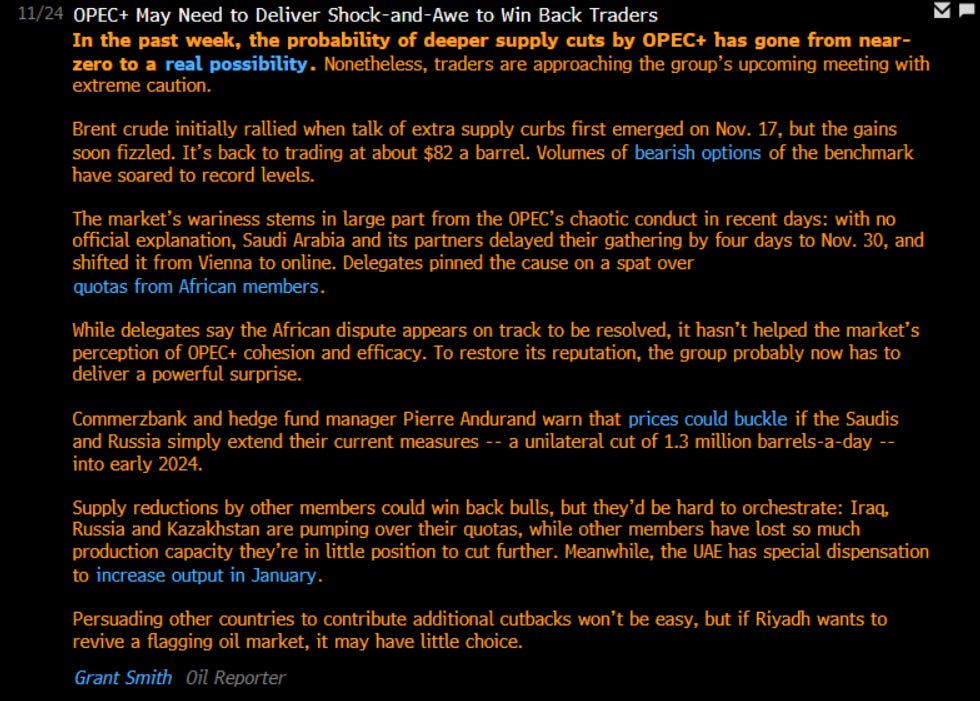The Research HUB: Macro Learning
Transmission of Volatility
In my room, there are 3 whole sections of my bookshelves dedicated to the Harvard Classics. Why? Because having a foundational education in the classics has been critical for my intellectual development. I remember when I first started reading books (not something I did growing up), I spent time figuring out the best way to educate myself.
I spent time reading books on how to read, how to learn, and how education functions through history. This is why I have the Harvard Classics on my bookshelves. What are the Harvard Classics?
“The Harvard Classics, also known as Dr. Eliot's Five Foot Shelf, is a 51-volume anthology of classic works from world literature, compiled and edited by Harvard University President Charles W. Eliot in the early 20th century. The purpose of this collection was to provide a comprehensive, self-guided education in a variety of fields including literature, philosophy, history, and science. Eliot believed that reading these selected works for just 15 minutes a day could provide an excellent education. The collection was designed to offer an introduction to significant ideas, cultural touchstones, and foundational texts in Western culture.”
The idea was if you can’t afford to go to Harvard, read these instead. In today’s world, if you can’t afford school, there is always a way:
In my mind, studying and reading the classics provides a foundation for acquiring additional expertise and skillsets in other domains. I happened to be working in financial markets right now but you could be working in any domain.
Many Subscribers of this Substack don’t even work in financial markets but benefit significantly from the research. Why? Because we are learning how to learn here.
Macro Learning:
Let’s expand on this by touching on several big-picture macro ideas and then several examples of what is taking place in the market right now.
Capital Structure:
Any time I approach a specific country or company, I always start by identifying the capital structure. Why? Because volatility is transmitted through the structure of an entity. The book that introduced this concept to me was The Volatility Machine by Pettis.
In the book, Pettis emphasizes the role of financial structure in determining financial activities. This structure can either safeguard balance sheets against trouble (anti-cyclical) or increase risk (pro-cyclical), influencing the volatility of economies, especially in emerging markets.
For more resources on analyzing these ideas in macro, check out the educational articles I have written:
Study Across All Economies:
The other thing I have found incredibly helpful is studying macroeconomic flows across ALL countries. If you begin studying macro in the US, you are basically starting with the exception of rules. Since the US has a global reserve currency in a highly financialized world, it doesn’t act the same way a “regular” country might.
This is why studying macro across multiple countries is incredibly instructive. Here is an article I wrote on Argentina. Studying the lessons of their crisis was eye-opening:
Examples Today:
If you want to study a country that no one is talking about today, check out Mexico. Someone who has been long the Peso for a while has been Thriddio Asset Management. Jose is a great resource for emerging markets and fixed income as well.
The idea of a capital structure functions in any commodity market as well. There is always a dynamic degree of elasticity in both supply and demand for energy production. As major players make decisions about their production, this information moves from uncertainty to certainty. The structure of the oil market will determine how this decision is transmitted through global markets.
This is why knowing the calendar for information can be important. If you know WHEN a lot of the information is released, then you can begin to get an idea of HOW a specific action is transmitted through the overall system. This is one of the main things I cover on the paid tier of the Substack.
Conclusion:
At the end of the day, this idea of a “structure” and “flows” through that structure exists in any dynamic complex system. This is why having a foundation in thinking like this can be helpful when you approach a specific domain.
After you have a good foundation, it all comes down to the QUALITY of your thinking. Why? Because……
In the information age, you simply need to be at the right place, at the right time, with the right information to succeed






Why isn't there an audiobook version of the Harvard classics?🤦♂️